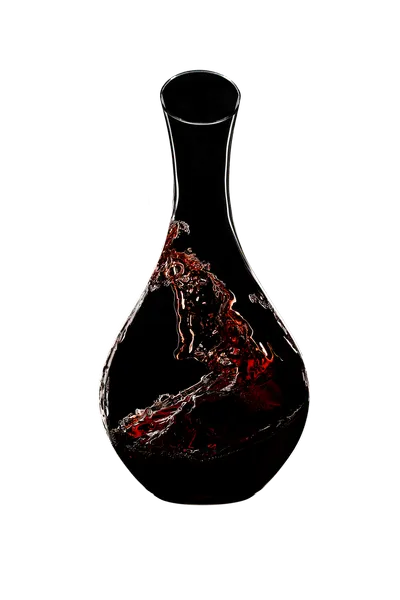4 Min Read
Unveiling the Magic of Decanting: A Wine Lover's Secret Weapon
As a wine enthusiast, you've probably heard the term "decanting" thrown around in conversations or read about it in articles. But have you ever wondered what the fuss is all about? Decanting wine is a simple yet powerful technique that can elevate your wine drinking experience to new heights. In this blog, we'll delve into the art of decanting, its benefits and how you can master this skill to impress your friends and family at your next gathering.
24 May 2023

Decanting: A Time-Honoured Tradition
Decanting is the process of pouring wine from its original bottle into a separate container, typically a glass decanter. This age-old practice dates back to ancient Rome, where wine was often stored in amphorae and decanted into smaller vessels for serving. The primary purpose of decanting is to separate the wine from any sediment that may have formed during the ageing process. However, decanting also serves another crucial function: aeration.
Aeration: Breathing Life into Your Wine
When wine is exposed to air, it undergoes a process called oxidation. This chemical reaction can have a profound impact on the wine's aroma, flavour and overall character. By decanting wine, you're essentially allowing it to "breathe" and interact with oxygen, which can help unlock its full potential.
The benefits of aeration are particularly noticeable in young, tannic red wines. Tannins are naturally occurring compounds found in grape skins, seeds and stems, which can impart a bitter, astringent taste to wine. Aeration helps soften these tannins, resulting in a smoother, more approachable wine.
On the other hand, older wines can also benefit from decanting, albeit for different reasons. Over time, wines can develop complex, layered aromas and flavours that may be masked by the initial "bottle stink" – a term used to describe the musty, closed-off smell that can sometimes be present when a bottle is first opened. Decanting helps dissipate these off-odours, allowing the wine's true essence to shine through.
The Art of Decanting: Tips and Techniques
Now that you understand the benefits of decanting, it's time to put this knowledge into practice. Here are some tips to help you master the art of decanting:
- Choose the right decanter: While there are countless decanter designs on the market, the most essential feature to look for is a wide base. This allows for maximum surface area contact between the wine and air, promoting efficient aeration.
- Decant with care: When decanting, pour the wine slowly and steadily to minimise agitation. This is particularly important for older wines, as excessive turbulence can cause delicate aromas and flavours to dissipate.
- Mind the sediment: For wines with significant sediment, it's a good idea to use a light source (such as a candle or smartphone flashlight) to illuminate the neck of the bottle as you pour. This will help you spot any sediment and stop pouring before it enters the decanter
- Time it right: The optimal decanting time varies depending on the wine. As a general rule, younger, more tannic wines can benefit from longer decanting times (up to several hours), while older, more delicate wines should be decanted for shorter periods (30 minutes to an hour).
- Experiment and enjoy: Decanting is as much an art as it is a science, so don't be afraid to experiment and find what works best for your palate. Try decanting different wines and comparing the results – you might be surprised by the difference it can make!
Discover the Difference Decanting Can Make
Decanting is a simple yet powerful technique that can transform your wine drinking experience. By allowing your wine to breathe and separate from any sediment, you'll be able to enjoy its full range of aromas, flavours, and complexities. So, the next time you uncork a bottle, consider giving decanting a try – your taste buds will thank you!
What wines are typically decanted?
Red wines, especially Cabernet Sauvignon, Merlot, and Shiraz; White wines with high tannins, such as Cabernet Franc and Petit Verdot; Port; Sherry and; Aged wines. If you are not sure whether or not to decant a wine, it is always best to err on the side of caution and decant it. Decanting will not harm the wine, and it will likely improve the taste!








